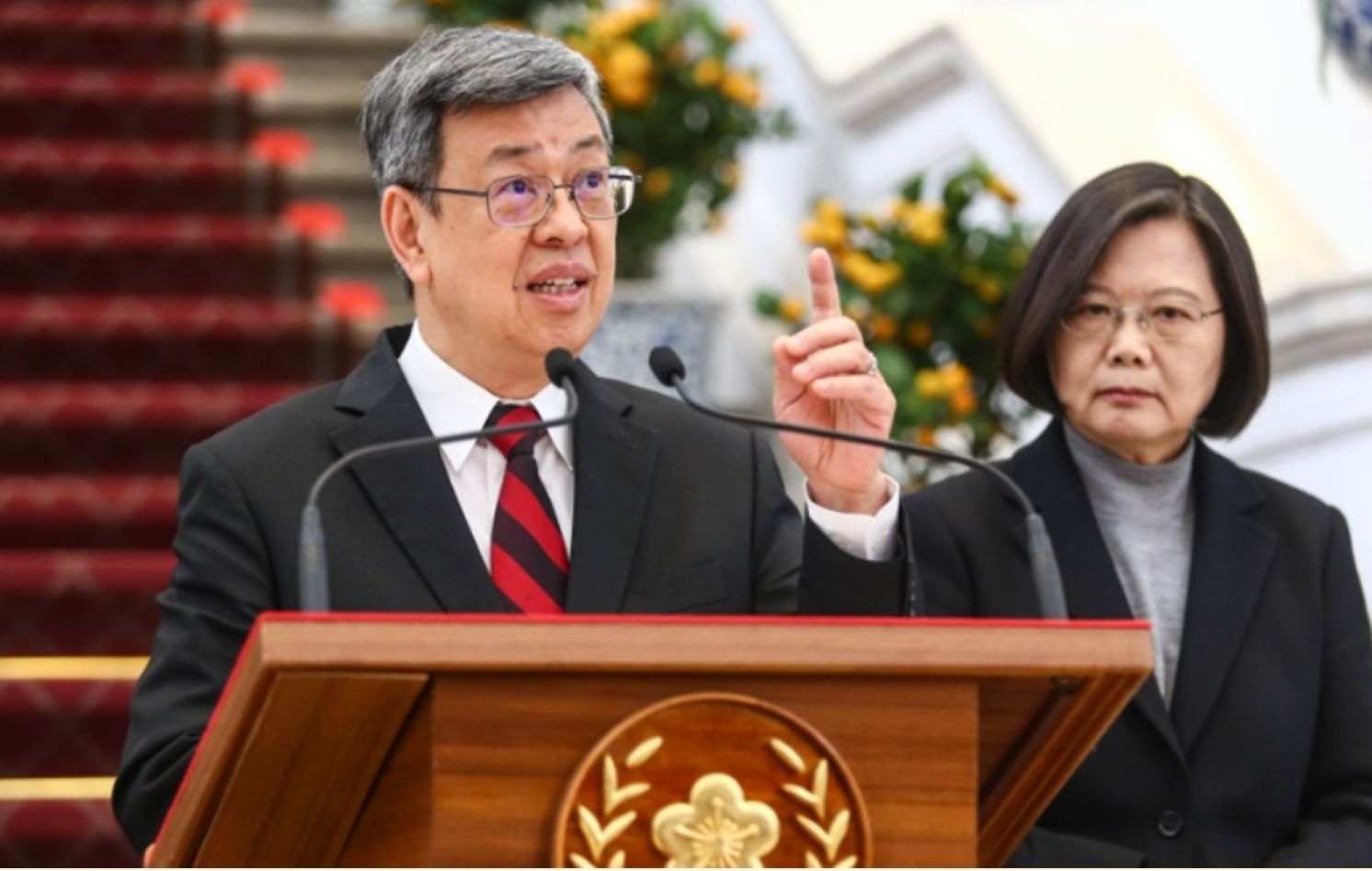
Cross-Strait Policy Should Be Tsai Administration's Priority
China Times Editorial, February 10, 2023
According to the latest report published by the American Chamber of Commerce in Taiwan (AmCham Taiwan), American businesses in Taiwan all think that the priority policy agenda for Taiwan in the next three years should be in the order of cross-strait relations, human resource development, sufficient energy supply, national security and U.S.-Taiwan bilateral trade agreement (BTA). Some 30 percent indicated impact on business operations caused by cross-strait tensions have increased since People’s Liberation Army (PLA) military exercises in waters near Taiwan in August last year. If the ruling Democratic Progressive Party (DPP) chooses not to listen to the voice of Taiwanese people and continues to wrongfully label the opposition party and some media as “China Resonators,” then it should at least reflect on the calls by AmCham Taiwan.
The fact that most members of AmCham Taiwan believe that cross-strait relations should be prioritized by the administration of President Tsai Ing-wen indicates they have been unable to transition Taiwan to a state where it can survive and thrive without engaging with mainland China over their last seven years in power. Remember the “New Southbound Policy” which President Tsai eagerly promoted in 2016? Remember the saying of “Don’t put all the eggs in the same basket" to diversify trade risks which the DPP reiterated all the time? Unfortunately, despite the New Southbound policy, trade volume between Taiwan and the mainland continues to increase every year. So, when Beijing issues a ban, Taiwanese businesses have to sustain painful impact. Otherwise, the DPP would have boasted to the public a long time ago how successful its cross-strait policy is.
The Tsai administration’s economic policy, which aims at de-coupling Taiwan from the mainland Chinese market and from the so-called "Red Supply Chain," has been proven a great failure. This economic policy in fact was hijacked by the wrong national security strategy, which led Taiwan to the brink of war. This is the main reason why AmCham Taiwan is so concerned. In the past seven years, the DPP's national security strategy has fundamentally shifted from the balanced approach under President Ma Ying-jeou to the DPP's traditional ideology, which deepened the tendency to confront China. As a result, Taiwan's internal and external policies were seriously out of joint.
Of course, cross-strait relations is not everything: Even if all the exchanges were cut, Taiwan can still survive. But cross-strait relations is closely connected with Taiwan’s economic confidence. If relations are cordial and security risks are reduced, foreign investors will have a more optimistic outlook on Taiwan’s economy, and Taiwan’s critical role as a link between mainland Chinese and Western markets will be highlighted. However, if cross-strait relations are poor, and Taiwan is shrouded in the cloud of war, then who has the courage to put capital and assets in Taiwan? Who will put its most advanced and core supply chain in Taiwan?
American businesses regard cross-strait relations as more important than U.S.-Taiwan BTA. It's sad that the Tsai administration put the BTA issue and participation in the multilateral economic agreements as highest priorities on the government’s agenda, ignoring to finetune and deepen the cross-strait economic and trade policies, to care and guide small and medium-sized enterprises (SMEs) in Taiwan involved in cross-strait trade. In recent years, these SMEs were sandwiched between Taiwan and mainland China under cross-strait political storms. The products of some were temporarily banned by the mainland due to the re-registration issue. It only improved gradually with the intervention by the opposition Kuomintang (KMT) and non-governmental organizations (NGOs) on trade. The ruling DPP only offers lip service.
Around Chinese New Year, President Tsai, the Mainland Affairs Council (MAC) and the Ministry of Transportation and Communications have voiced their respective support for the resumption of cross-strait exchanges. The Straits Exchange Foundation (SEF) also resumed the Lunar New Year gathering for Taiwanese businesspeople based in the mainland. This indicates that it was not until its last year had the Tsai administration come to really know its policy priorities. At present, it is paramount that the government resume prioritizing cross-strait policy so that Taiwan's economic competitiveness can be enhanced, and peaceful and stable cross-strait relations can be solidified.
Chairman Hsu Shu-po of the General Chamber of Commerce once revealed that President Tsai has personally instructed that the cross-strait direct flight points be increased. However, the MAC and Central Epidemic Command Center (CECC) kept passing the buck to each other and was therefore rebuked by China as "dodging the issue." Should President Tsai determine to improve cross-strait relations, she should change the priority of its policies and put resumption of cross-strait exchanges as the main focus of all the ministries.
First, the government should respond actively to the proposal presented by mainland China to Taiwan's counterpart through the cross-strait Aviation Agreement. Second, the government should review the ban on mainland tourists and the resumption of direct flight waypoints and the Mini-Three Links. In addition, various Taiwanese industrial and commercial groups are going to visit Beijing soon. The government should make the best use of these conduits to make up for the lack of communication between officials on both sides of the strait.
Prioritizing cross-strait policy means that any policy and any move on the part of the government should aim at safeguarding the peace and stability in the Taiwan Strait.
At a time of great U.S.-China tensions, Taiwan cannot stay alone and out of the way. In the new year, the Tsai administration should avoid confronting the red line of peace and war. It should also move one step further by making cross-strait logistics flow better, including increased personnel and capital flows so that the people of Taiwan will no longer live under the fear of war. In this way, enterprises all over the world will be reassured and re-invest in Taiwan, and in turn, invest in peace.
From: https://www.chinatimes.com/opinion/20230210004014-262101